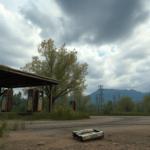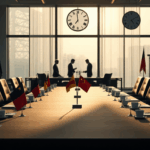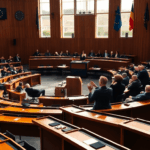Table of Contents
The call for immediate elections
In a rapidly changing political climate, former Liberal deputy prime minister John Manley has voiced a compelling argument for Canada to hold an election sooner rather than later. In a recent interview with Global News, Manley expressed his concerns about the implications of delaying the electoral process until after the inauguration of U.S.
president-elect Donald Trump. He believes that waiting could leave the incoming Canadian government ill-prepared to tackle the challenges posed by the new U.S. administration.
Impacts of U.S. policy on Canada
Manley highlighted that the potential for increased tariffs on trade partners, as promised by Trump, could significantly affect Canada’s economy.
While some analysts suggest that Canadian oil might escape these tariffs, the uncertainty surrounding trade relations remains a pressing issue. Additionally, NATO defense spending has been a point of contention, with American officials urging Canada to increase its military expenditures.
This pressure could further complicate Canada’s diplomatic relations with its southern neighbor.
Immigration and border security concerns
Another critical area of concern is immigration, particularly in light of Trump’s promises regarding mass deportations. Immigration Minister Marc Miller has emphasized the need for both Canada and the U.S.
to enforce the Safe Third Country Agreement more rigorously. Manley warned that Canada must prepare for a “very different environment” in terms of bilateral relations and global dynamics. He urged the current government to seek a mandate from the Canadian people, suggesting that without one, the responsibility of navigating these complex issues may fall to another party.
The current political climate
Despite the growing calls for an election from Conservative Leader Pierre Poilievre, Prime Minister Justin Trudeau has remained noncommittal about moving the election date forward from the legally mandated October 2025. The Bloc Québécois, led by Yves-François Blanchet, is also weighing its options, discussing strategies with opposition parties while simultaneously pursuing legislative goals that could influence their decision to push for an election.
Recent polling data from Ipsos indicates that support for the Liberal minority government has reached a “new low,” with the party trailing the Conservatives by significant margins. This decline in support, coupled with internal dissent within Trudeau’s caucus, raises questions about the stability of his leadership and the future direction of the Liberal Party.
As Canada stands at a crossroads, the urgency for an election becomes increasingly apparent. The decisions made in the coming months will not only shape the political landscape but also determine how effectively Canada can respond to the challenges posed by both domestic and international pressures.





